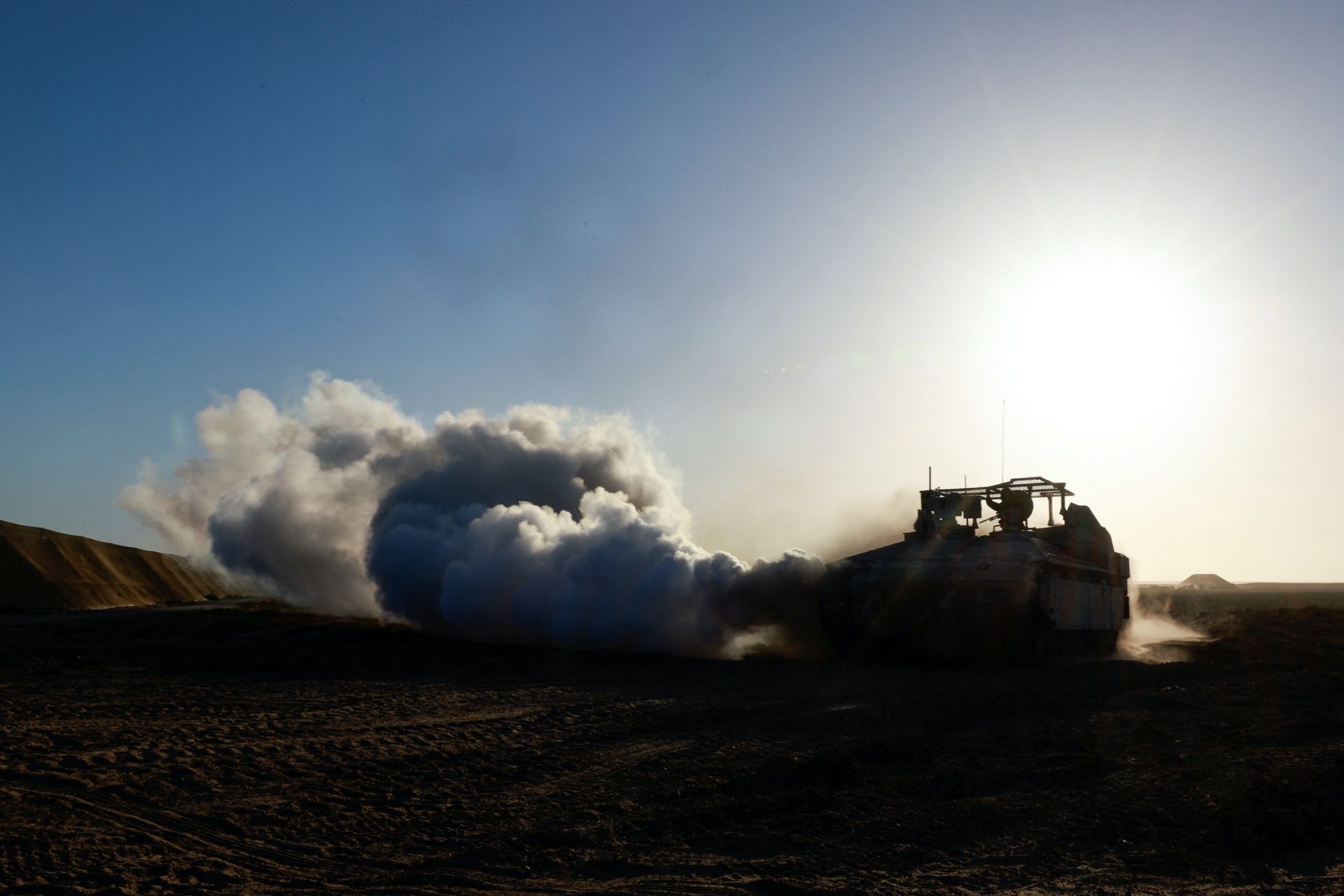New Delhi’s Balancing Act In A Chaotic Middle East
India’s diplomacy will be tested if the Gaza war continues indefinitely, or if relations between Israel and Arab nations further decline.
Originally published at Hindustan Times

By experts and staff
- Published
Experts
![]() By Manjari Chatterjee MillerSenior Fellow for India, Pakistan, and South Asia
By Manjari Chatterjee MillerSenior Fellow for India, Pakistan, and South Asia
Last month, Prime Minister Narendra Modi embarked on a veritable love fest in West Asia (the Middle East). His first stop was the United Arab Emirates for his seventh visit to the country. There he headlined one of his famous Indian diaspora rallies, inaugurated Abu Dhabi’s first ever Hindu temple, and signed 10 bilateral agreements. The trip cemented the growing relationship between India and the UAE. The UAE is now India’s third largest trading partner, its second largest export destination, and fourth largest source of Foreign Direct Investment (FDI). From the UAE, Modi travelled to Qatar where he committed to “further expanding and deepening bilateral cooperation”. The Qatar trip came on the heels of the Indian government successfully negotiating with the Qataris to release eight Indians who had been sentenced to death for allegedly spying. The two hugely successful trips were preceded by Modi strongly voicing support for Israel following the attacks by Hamas, just over four months ago. The dizzying juggling act that India seems to be perfecting in West Asia is paying off in spades. But it comes with risks.
India’s outreach to West Asian countries began shortly after Independence in 1947. India’s anti-colonial socialist leaders frowned upon Israel (a country built on religious nationalism just like Pakistan), fully supported the Palestinian cause, and, cognisant of India’s large Muslim population, tried to make common cause with Islamic nations. However, other than Israel, which was keen to court India but with whom India did not agree to establish diplomatic relations until 1992, few of the West Asian countries particularly responded to India’s overtures and indeed regularly gave Pakistan both political and military support. Today the tide has turned. Arab nations and Israel are both enthusiastic about building ties with India and Modi’s BJP government has responded in kind.
There is a huge Indian diaspora spread across the Arab nations, mostly blue-collar workers who regularly send remittances home. For example, nearly 38% of the UAE’s population comprises Indian citizens. The Indian government has long been concerned about protecting this diaspora and securing their rights, particularly as many are systematically exploited in these countries. The new Hindu temple is, thus, a way for the UAE to signal inclusivity and for India to signal it cares about its Gulf diaspora. In the meantime, large Indian companies have become competitive in securing infrastructure contracts in Arab nations, Indian and Arab companies have secured mutually beneficial energy deals (such as the liquified natural gas deal between India and Qatar’s state-owned hydrocarbon companies Petronet and QatarEnergy which will supply India 7.5 million tons of LNG per year for the next two decades), and Arab nations have pledged to invest billions in India (for example, Saudi Arabia has pledged $100 billion).
Despite this move toward Arab nations, India maintains a strong relationship with Israel. Israel is one of India’s top arms suppliers, and India remains hugely concerned about the spectre of state-sponsored Islamist terror groups.
Thus, Israel and India regularly cooperate on counter terrorism and intelligence sharing. The United States‘ strengthening partnership with India has only further boosted the India-Israel relationship as well as relations with Arab nations. At the G20 Leader Summit last year, Modi announced the India-Middle East-Europe Economic Corridor (IMEEC) — touted by some as a counter corridor to China’s Belt and Road Initiative — that involves Saudi Arabia, the UAE, France, Germany, Italy, the European Union, and the United States in addition to India.
The problem remains, however, that this balancing act can create headaches for India as well as reticence in its behaviour. Modi was intensely criticised for his quick statement of support for Israel, and the Indian government hastened to clarify that it still supported a two-state solution. If there is a prolonged Israel-Gaza war, or relations between Israel and Arab nations further decline, India may no longer be able to sit on the fence.
India’s relations with Iran are also at stake. India has long been supporting maritime security in the Red Sea and Indian warships play an important role in rescuing hijacked ships from pirates. But India has thus far declined to join “Operation Prosperity Guardian,” the United States-led maritime force to protect ships from Houthi attacks. If it does, India risks offending Iran, a country with whom India has long had strong diplomatic links. Yet the Houthi attacks have implications for Indian trade which utilises routes through the Red Sea and Suez Canal to reach North Africa and the West.
Thus far, the Modi government has been adept at expanding its footprint and juggling the morass of sensitive relations that is West Asia. There is little doubt China is taking note. However, it remains to be seen if this can be a viable long-term strategy.
